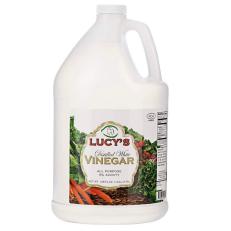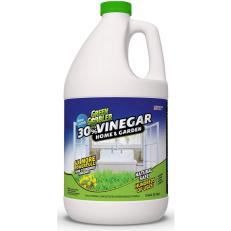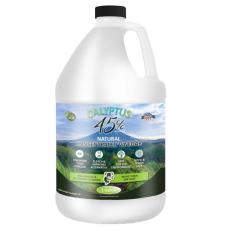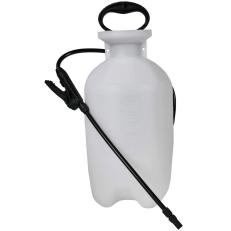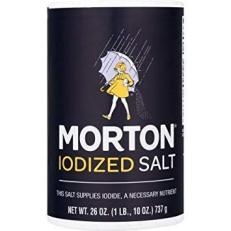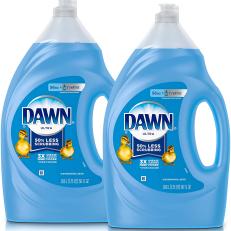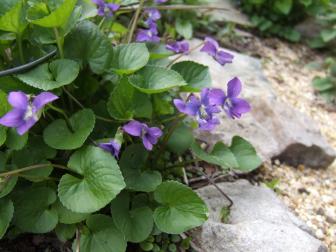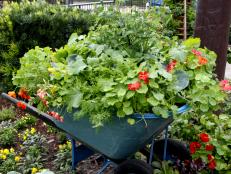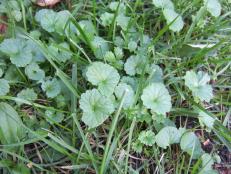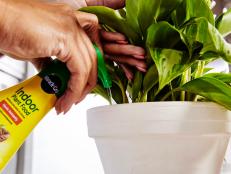Make Your Own Natural Weed Killer
Tackle troublesome garden weeds the sustainable way with this easy-to-make homemade weed killer.
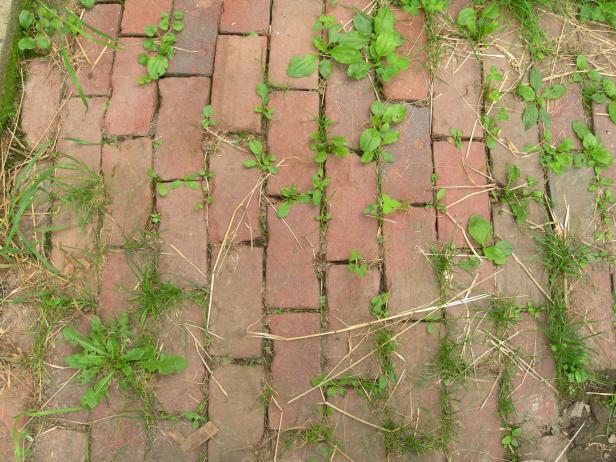
A solution of vinegar, salt and dish soap can be a cheap and effective tool against weeds.

Even in the best of plots, weeds will grow. And why wouldn't they? You've provided inviting soil and the sun shines on even the most reviled plant. If you are fighting the good fight against those unwelcome visitors, there is no shortage of chemical options for clearing the decks, but many are now seeking alternative homemade weed killers to commercial herbicides as we enjoy a long-overdue trend toward "greener" living.
Pulling weeds by hand is always the most reliable solution, but I accept that there are times when herbicides may be the practical choice. For small outbreaks or perimeter weeds, though, I prefer to seek out a response other than the use of synthetic chemicals. Fortunately, a cheap and easy natural alternative using ingredients from the pantry will get the job done. To a point.
Natural Weed Killer Recipe
Combine ingredients in a spray bottle and treat weeds at the sunniest time of day for best results. When looking for a natural alternative to herbicides, a cocktail of vinegar, salt and liquid dish soap has all of the ingredients needed to quickly kill weeds.
How does the homemade weed killer work?
Acetic acid in the vinegar and the salt are both very good at drawing moisture from weeds. Dish soap acts as a surfactant, which is an agent that will reduce the surface tension that can cause the weed-killing concoction to bead on the leaves instead of being absorbed by the plant.
How long does it take vinegar to kill weeds?
On a warm, sunny day, the results of this homemade spray will be obvious in a matter of hours as weeds turn brown and wither. Depending on the weeds and the season, the results can be speedy and effective.
But there are downsides. Unlike some chemical solutions, this formula is not built to work its way into the root system, meaning multiple treatments will probably be necessary to keep weeds at bay. Additionally, when looking for a quick fix, sunshine makes a big difference and the 5 percent acetic acid in most household vinegars may fall short of expectations against hardier weeds.
Shortcomings aside, keeping a spray bottle of this homemade solution on hand is an inexpensive and often effective weapon against weeds that may pop up along walkways, fences or house foundations. Spray the targeted weeds and avoid dousing the soil or nearby plants. This weed killer doesn't have its Master Gardener certification and can't tell the difference between weeds and the plants you'd prefer to keep around.
Buy the Ingredients
Preventing Weeds
Corn Gluten
Available in granules, a fine powder or pellets, this natural byproduct of milling corn also works to keep weeds at bay. As a "pre-emergent" weed suppressant, it won't kill established weeds or plants but will prevent new weeds from growing. Established plants and transplants with strong root systems will not be harmed by corn gluten meal, so long as you don't over-apply.
Other methods of preventing weeds in your garden beds include applying a weed barrier such as landscape fabric or covering with a 3-inch layer of mulch or a recyclable material such as cardboard.
Killing Weeds With Brains and Brawn
For the organic gardener, a thoughtful approach and diligent maintenance are the tools of the trade. Close consideration to detail when planning a garden and continuing and consistent management to the planting environment can mean the difference between enjoying a productive crop and watching plants wither.
"Growing organically, you're pretty much using brains and brawn," says Sarah Voiland of Red Fire Farm, a certified organic grower in Montague, Massachussets. Red Fire operates through farmers' markets and their consumer supported agriculture (CSA) program and have been providing organically grown produce since 2001.
"A lot of it is just about planning," Voiland continues. "You've got to think about what crops are weed sensitive and make sure they're going into a field that doesn't have high weed pressure. That's done by rotating where you plant particular crops. For example, winter squash is fairly easy to keep "clean" (weed free). Because a field where the squash was grown finishes pretty clean, we can follow it with something like carrots, which are a huge job for weeding. That way the carrots won't face as much weed pressure."
The practice of crop rotation is important for the home gardener as well. Keeping a journal of where different plant families were sown each year and changing crop placements each year will reduce environmental pressures and ease the burden weed-intensive crops can bring.
Cultivating the plot before planting by disturbing just the top layer of soil will destroy weeds that are beginning to sprout, allowing crops a head start. Mulch is also a valuable tool in keeping weeds down, especially early in the season. But even with thorough planning and plot preparation, weeds are a fact of gardening. Healthy soil will always draw hungry weeds.
As with many things, the answer lies in a little hard work.
How to Identify Common Weeds 25 Photos
Learn how to identify common weeds, including tips on getting rid of them.
As plants begin to sprout, so do weeds. Because weeds are frequently more aggressive growers than the crop itself, plants are at their most vulnerable in these early stages. Once plants reach a size where they are able to "shade out" their competitors, dangers are reduced. Germinating seeds in containers and transplanting them into the ground once they have reached two inches or more eases the process.
Regular inspection and diligence in keeping the plot weed-free manually are the best tools of the organic gardener for protecting crops. This strategy applies to a garden of any size.
"One of the biggest things I learned when I got into farming is that the best time to kill weeds is when you can barely see them. That takes the least amount of energy. We will even get out there with butter knives," Voiland laughs.
Natural Weed Killers Tested
All-natural products don't always work like we want them too, so we tested homemade weed killers to see which blends are actually effective. Watch the video below to see what we learned.


.-Battle-on-the-Beach-courtesy-of-HGTV.-.jpg.rend.hgtvcom.196.196.suffix/1714761529029.jpeg)




